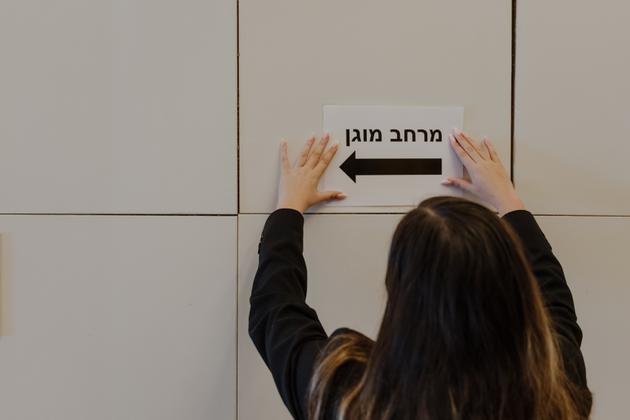


In northern Israel, Kiryat Shmona's displaced lose hope of return
NewsFor over a year, almost all the 25,000 inhabitants of the town on the border with Lebanon have fled the region. The families, scattered throughout Israeli territory, are housed in hotels, with no clear vision of their future.
Time passes so slowly in Netanya. On the seafront, 30 kilometers north of Tel Aviv, a huge hotel in the city has been home to 50 families from Kiryat Shmona, a commune in the very north of Israel, in the "Galilee panhandle," which borders Lebanon, for over a year. In the wake of the October 7, 2023 massacre committed by Hamas commandos in the south of Israel, Hezbollah rockets began raining down on the north. Nearly 23,000 of Kiryat Shmona's estimated 25,000 inhabitants left.

Children go to nearby schools and parents work remotely, but the idleness is palpable. "I haven't been back to see my house for over a year," said Lelach, 35, an accountant in the army and mother of a 7-year-old daughter (like all the women mentioned, she only wished to give her first name). "Look how the vegetation has grown, I don't recognize mine anymore," said Ya'ara, showing us images captured by the surveillance cameras of her home, located in the village of Sivan, just 1 kilometer from the Lebanese border, on her smartphone.
'We support Bibi'
Netanya's long beach, stretching across the road, attracts no one. Small groups of displaced persons from Kiryat Shmona mill about between the reception chairs and the restaurant. The latest rumors and news are debated with irritation. The Israeli offensive on Lebanon, which began on September 23, has delighted the families, even as it has ruined their hopes of a speedy return. Lelach swears she saw the entrance to a "terrorist" tunnel next to her daughter's school with her own eyes, and won't budge. "All of us here support Bibi [nickname for Prime Minister Benjamin Netanyahu], long live Bibi!" she said. In the hubbub, many incriminate the former head of government, Ehud Barak, who is guilty of withdrawing Israeli troops from southern Lebanon in 2000. Others accuse the anti-war protesters, who are very much in the minority, of weakening the country.
"It's difficult for all these people, they brood all day and some are desperate," said Tal Shkelim, 49. "I myself have my parents and sister in Jerusalem, a brother in Eilat [in the south of the country] with his family, whom I haven't seen for months, and yet another in Tel Aviv. We're all separated from each other." "The situation," he said, "is particularly hard for the elderly, they want to die at home, but, yesterday, an old lady died here in the hotel, so I'm doing what I can to help them." This lawyer is part of a 40-strong team, paid by the municipality – managed by a young mayor from Netanyahu's Likud party – to bring assistance to its constituents, scattered everywhere.
You have 66.28% of this article left to read. The rest is for subscribers only.
